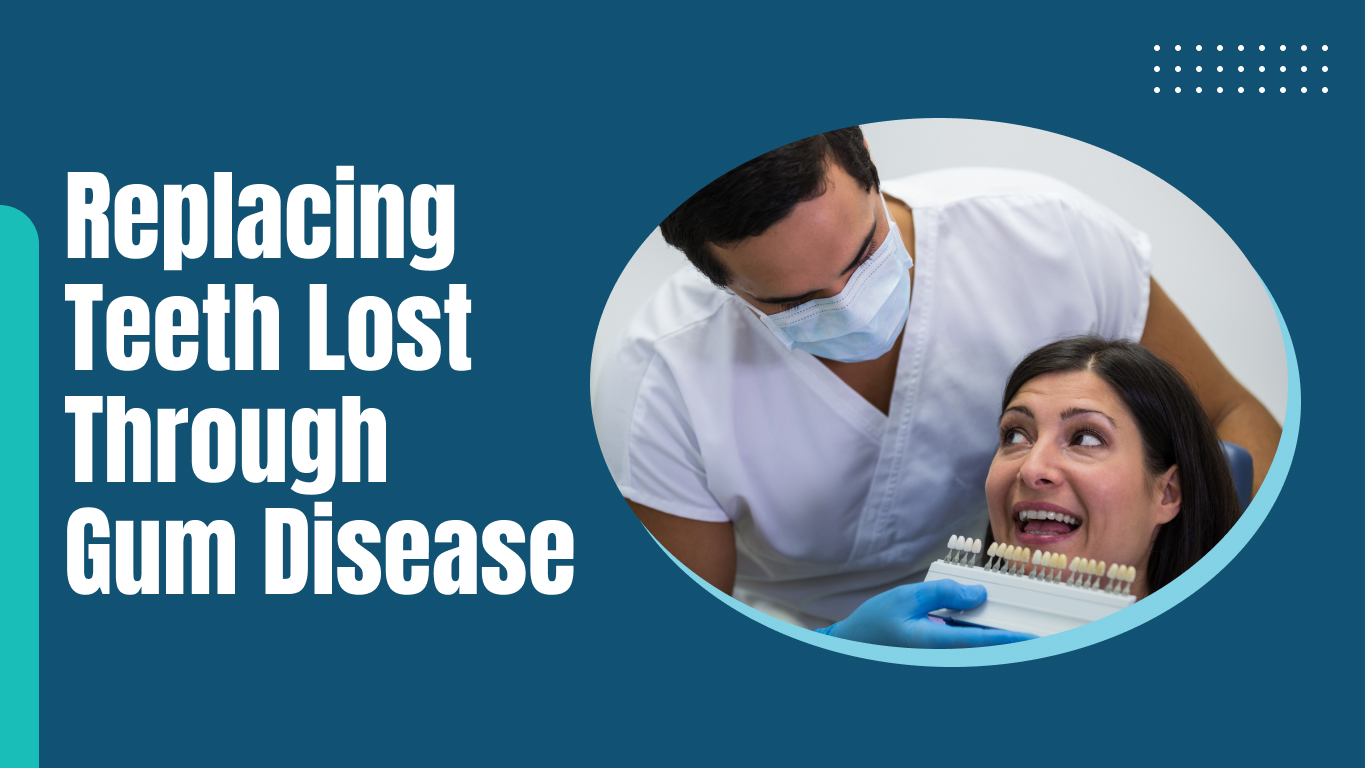Gum disease or periodontal disease is an infection that occurs on the tissues that hold the tooth due to poor oral hygiene. Lack of proper oral hygiene practices like brushing and flossing can lead to plaque build-up which hardens with time. The bacteria then cause an infection on the surrounding tissues and may transfer to the bone. This in turn can lead to tooth and bone loss if left untreated.
Tooth replacement for teeth loss due to gum disease can be a little complicated because of the probability of bone loss as well as gum recession. If there is bone loss in the cavity left by the tooth, then there might not be enough structure to hold a dental implant. This makes it very risky because tooth replacement options become limited or non-existent. Wondering how you can replace a tooth lost through gum disease? Read on to find out the best teeth replacement options for teeth lost through gum disease.
Dental implants
After treating your gum disease, you should see a dental implant dentist who can then inspect the tooth loss area and see whether or not you can have a tooth replacement procedure. If there is minimal bone loss, then an implant can be installed without any problem. However, if there is extensive bone loss, your dentist may suggest a bone graft procedure first before proceeding with installing the dental implants. The bone graft helps to restore the bone structure which can then be used to hold a dental implant.
Dentures
Since gum disease can be highly destructive if left untreated, the extent of damage from gum disease can be so advanced that permanent replacement options like implants may not be possible. Therefore, a dentist may recommend dentures. Dentures will only restore the physical appearance of the tooth but functionality at this point is out of the question. Depending on a patient’s case, a dentist will recommend the best dentures to use. This can be partial if only a few teeth are lost or complete if a whole dental arch is affected. Dentures are removable, making them less functional.
Conclusion
The good news is that gum disease can be treated well if detected early enough. This is why it is important to go for regular dental check-ups. These check-ups help with professional cleaning of the teeth which minimize the chances of developing gum disease or even cavities. However, if you suspect that you have gum disease, see your dentist as soon as possible to help treat the infection before it becomes worse. There are different treatment options for gum disease such as oral antibiotics, enzyme suppressants, antibacterial gel, and even surgery for acute periodontal disease which has affected the bone.
At Carrum Downs Dental Group, our experienced dental team offers comprehensive gum disease treatment and personalised tooth replacement solutions, including dental implants and dentures. From non-surgical treatments like antibiotics and antibacterial therapies to advanced periodontal care, we focus on restoring your oral health and protecting your smile for the long term.
Related Posts
To Avoid Gum Disease, It’s Important to Keep Up With Dental Cleanings
Periodontitis: Why We Need a Vaccine for Gum Disease?
Top Five Symptoms of Gum Disease
Replacing Teeth Lost Through Gum Disease


